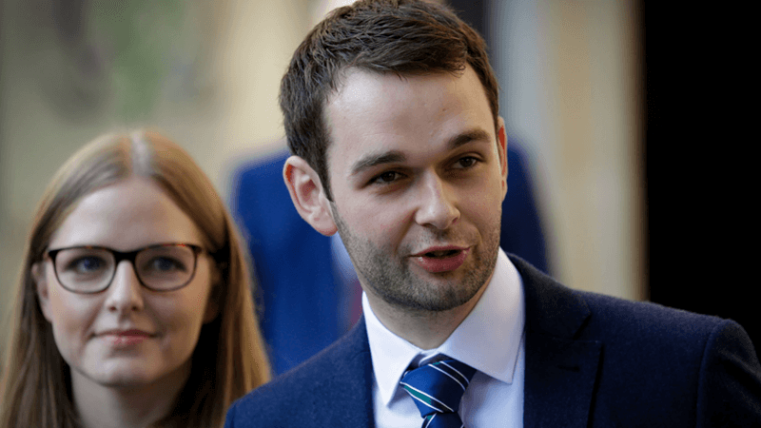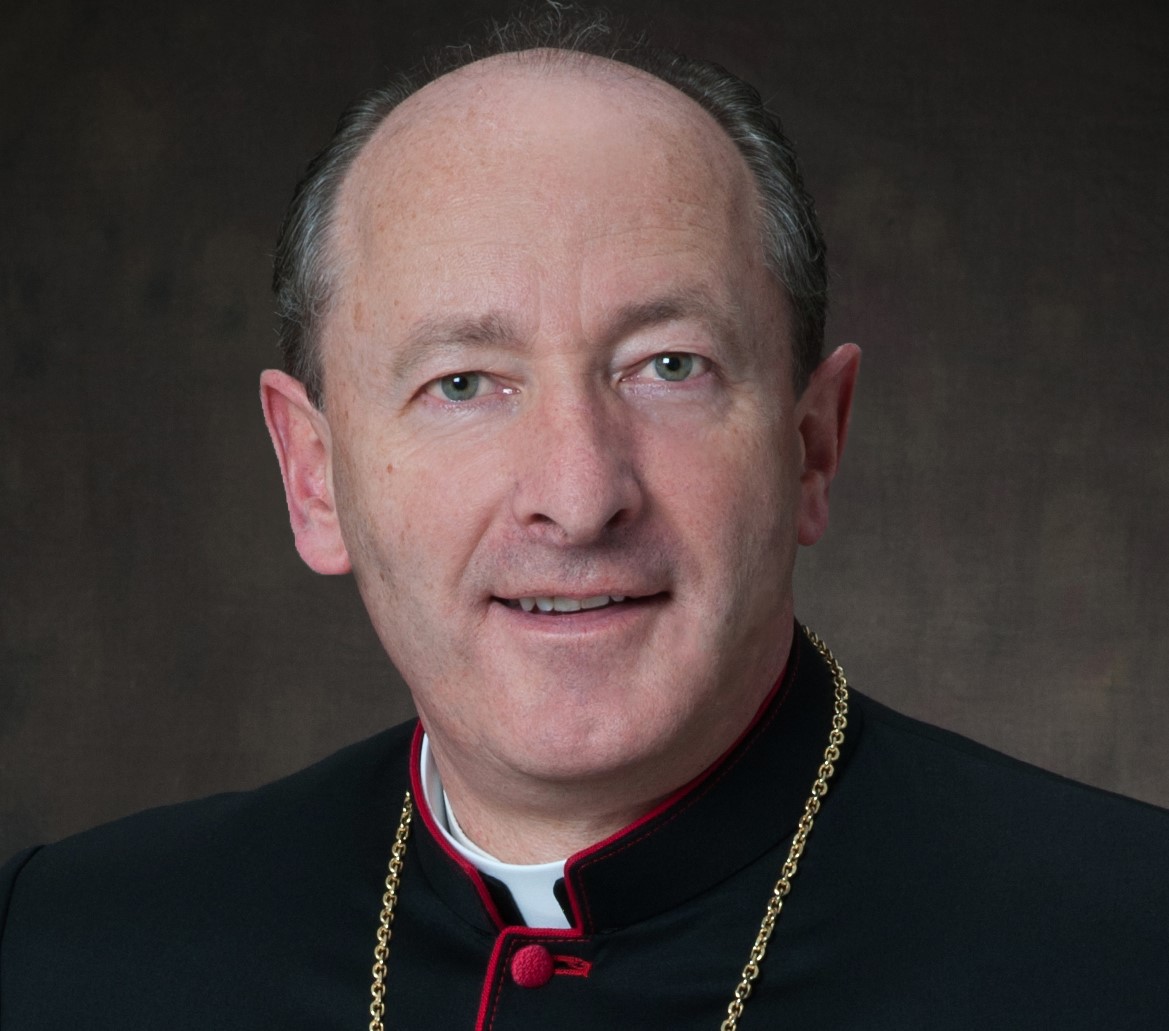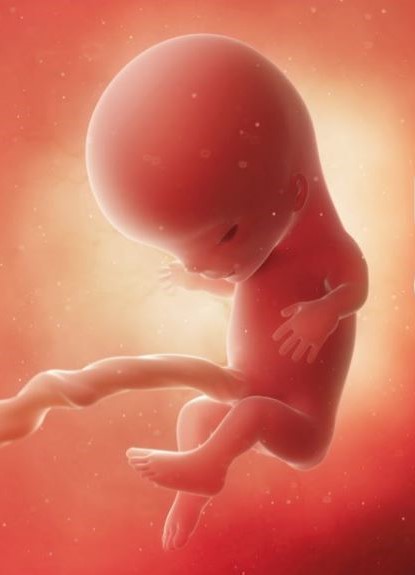
An abortion is comparable to “hiring a hit man” to eliminate a problematic person, Pope Francis said on Wednesday. He made his off-the-cuff remarks in an address to tens of thousands of people gathered in St Peter’s Square for his weekly general audience.
The pope denounced what he called the contradiction in allowing “the suppression of human life in the mother’s womb in the name of safeguarding other rights”.
“But how can an act that suppresses an innocent and helpless life that is germinating be therapeutic, civilized or even simply human?” he said.
“I ask you: ‘Is it right to ‘take out’ a human life to solve a problem? What do you think? Is it right? Is it right or not?” he said in unprepared remarks. Many in the crowd shouted “No”.
“Is it right to hire a hit man to solve a problem? You cannot, it is not right to kill a human being, regardless of how small it is, to solve a problem. It is like hiring a hit man to solve a problem,” he said.

The court found that Ashers bakery, whose owners Daniel and Amy McArthur are Christians, did not discriminate against the man and did not refuse to bake the cake for Gareth Lee because of his sexual orientation, religious belief or political opinion.
The president of the supreme court, Lady Hale, said: “The bakers did not refuse to fulfil his order because of his sexual orientation. They would have refused to make such a cake for any customer, irrespective of their sexual orientation. Their objection was to the message on the cake, not to the personal characteristics of Mr Lee.” She added: “Accordingly, this court holds that there was no discrimination on the ground of the sexual orientation of Mr Lee.”
The avowedly liberal, pro-gay marriage, writer and journalist, Fionola Meredith, welcomed the ruling and called the case costly, divisive and ill-advised. She was an early supporter of Ashers when the case first made the headlines. On Thursday she wrote that that support cost her ‘a few “liberal” friends: proponents of selective tolerance, who clearly aren’t as liberal as they like to think they are.’
‘To some, standing up for Mr and Mrs on this particular issue was an act of hateful, even fascistic betrayal. A fellow journalist informed me that my views “put me to the right of the DUP”.’

Doctors who conscientiously object to abortion “will be railroaded out of practice”, said the Bishop of Waterford and Lismore, Alphonsus Cullinan.
He told radio station WLR on Tuesday “that’s the stark reality. It affects not just doctors, but midwives, pharmacists, all people who will be directly involved with the provision of something, if they don’t agree with it.”
Dr Cullinan said freedom of conscience was a human right under the UN declaration of human rights.
He said the Government could choose a system such as exists in New Zealand where doctors can opt in or out of the scheme if they wish.
“So we’ll see if we are really in a pluralistic society where people’s consciences are respected.”
Dr Cullinan said doctors, even if they conscientiously object to abortion, will have to refer the woman to someone they know will carry out the abortion. “Now that’s like saying ‘I won’t pull the trigger, but I’ll give the gun to the next guy’, knowing that he or she will pull the trigger. That is not respecting the right of freedom of conscience of the individual.

Far more new resources for daycare of children, rather than homecare, have been announced in the latest budget.
Speaking in the Dail, Minister for Finance, Paschal Donohoe said the credit for home carers – available to those who stay at home to mind children or an older person – will be increased by €300 to €1,500.
However, the Minister said funding for early learning and childcare will increase by just under €90 million to €574 million. This funding supports both the ECCE Pre-School Programme and the Affordable Childcare Scheme.
He told the Dail the income thresholds for the Affordable Childcare Scheme will increase so that the base income threshold is being raised from €22,700 to €26,000; the maximum income threshold will go from €47,500 to €60,000; and the multiple child deduction will increase from €3,800 to €4,300.
The Stay-At-Home Parents Association Ireland, in acknowledging the increase of €300 in Home Carer Tax Credit in the Budget, noted that in net terms this might amount to an extra €2 a week and that “those who fall outside of the tax bracket or who are cohabiting will not benefit”.
Spokesperson for the association Pauline O’Reilly said ‘after tax this amounts to very little and those who really need the support most are left out in the cold. Even as it stands it is below the increase in social welfare payments.’
‘All children matter regardless of the income of their families. We have been calling for the Universal Affordable Childcare Scheme payment to be paid directly to families so that they can make a decision over how and where children are cared for.’
‘Those who are Stay-At-Home Parents make up the majority of parents in the country and receive no social welfare benefits as they are not considered to be available for work,’ she said.

The Pro Life Campaign has described as “obscene” the setting aside of €12 million in today’s budget for the provision of abortion in Ireland. The Government made clear today that the €12 million contained in the budget is not the total cost envisaged annually for abortions but just an initial roll out cost.
Commenting on today’s news, Eilís Mulroy of the Pro Life Campaign said: “It is obscene that €12 million of taxpayers’ money has been set aside for one reason and one reason only – to end the lives of unborn babies.
“Minister Harris keeps talking about his commitment to ensuring a ‘safe, woman centred approach’ as though the purpose of legal abortion was to save women’s lives. Simon Harris knows perfectly well that that’s not the case. The €12 million will be spent not on improving healthcare provision in Ireland but on destroying innocent human life.
“Minister Harris can engage in whatever semantic gymnastics he wishes but ultimately nothing can disguise the reality that the new law he is introducing is a cold and clinical attack on unborn human life. We were told that “choice” and “compassion” would be the outcome of removing the Eighth Amendment but today’s news is another stark reminder of what the referendum was really about.”

Mothers who give birth using donor eggs do not have the same connection with their babies as women who use their own eggs, a new study suggests.
Scientists at Cambridge University found that women who do not have a genetic connection with their offspring show “subtle yet meaningful” differences in how they interact.
Their observations showed that donor mothers made slightly less eye contact with their babies and responded less to their games.
The researchers believe the differences may be explained by an awareness on the part of the mother that they are not genetically linked to their child, or because they typically arrive at parenthood later in life.

A Catholic marriage advisory service in Cork has forfeited a quarter million euro annual Government grant because it does not want to diverge from its ethos which says that marriage can only take place between a man and a woman. The centre had been instructed to give marriage counselling to same-sex couples.
The Cork Marriage Counselling Centre (CMCC) is a service of the Catholic, Cork & Ross Social Services and has been working with couples since the 1970s. It receives between €250,000 and €300,000 a year in funding from Tusla, but the arrangement is now at an end, even though the CMCC has been dealing with a steady stream of clients.
“It has always been the policy of the centre to welcome everyone regardless of means or status,” they said in a statement. “We believe the loss of this low-cost service to the people of Cork who can’t afford to pay for private counselling is shameful.” The statement said staff were not consulted on the decision by CRSS to not sign the service- level agreement and asked how another Catholic agency, Accord, had been able to do so while CMCC did not.
It had been announced in August that Accord would comply with the new strictures and offer its marital counselling service to same-sex couples.
President of Accord Bishop Denis Nulty told the Irish Independent at the time that they “can’t refuse people” and indicated the move was in line with Pope Francis’ lead in the papal document, Amoris Laetitia, the ‘Joy of Love’. The document does not require Church services to counsel same-sex couples. It does speak of the need to accompany people but does not make clear what this means in every context.

A referendum to establish a constitutional ban on same-sex marriage in Romania has failed – after only a fifth of voters turned out to vote. Romanians were being asked whether they wanted the constitution changed to specify that marriage can only be between a man and a woman.
But just 20.4% of eligible voters cast ballots – short of the 30% needed. The vast majority of those who voted, voted in favour of the referendum.
Mihai Gheorghiu, president of the pro-referendum Coalition for Family, told the BBC ahead of the vote they were trying “to protect, at a constitutional level, the definition of marriage – between one woman and one man”.
But after two days of voting, it seems the No campaign’s strategy – to boycott the vote in the hope the turnout fell below the 30% needed to validate the referendum – was successful. The low turnout comes despite the support of the powerful Orthodox church, and the unusual step by the government of extending the vote to two days instead of one. The constitution will retain its current, neutral wording – that a family “is founded on the freely consented marriage of the spouses”.

Verona’s town council voted to declare the northern Italian city officially “pro-life”.
Councillors approved a motion that calls itself “an initiative to prevent abortion and promote motherhood”. It demands public funding for anti-abortion groups and calls for the council to promote a regional project that encourages pregnant women to place unplanned babies for adoption rather than opt to end their lives.
Despite the fact that abortion is legal everywhere in Italy, and amid protests from feminist groups, the motion was passed by 21 votes to six.

Ireland has been found to have the second-highest rate of surrogacy use, according to a survey involving 90 countries. Surrogacy is banned in countries like Germany, Austria, Italy and Sweden because it is thought to exploit poorer women and commodify children.
The survey, carried out last year by Families Through Surrogacy (FTS), claims Ireland is second only to Israel in the rate of use of surrogacy. Families Through Surrogacy based its finding on the answers given by 30 agencies in nine countries dealing with clients from 90 nations. It found that 68% of surrogacies carried out for Irish couples took place in Ukraine.
Sam Everingham, a director of the Australia-based FTS, believes the proposal to ban commercial surrogacy in Ireland would be a mistake and would drive couples to break the law. “Learning from countries like Australia, where three states have banned overseas surrogacy, shows such policies fail,” he said.
“Despite such policies in Australian states, that country remains the second largest user of cross-border surrogacy globally.”